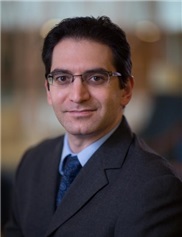Grants Funded
Grant applicants for the 2024 cycle requested a total of nearly $3 million dollars. The PSF Study Section Subcommittees of Basic & Translational Research and Clinical Research evaluated more than 100 grant applications on the following topics:

The PSF awarded research grants totaling over $650,000 dollars to support more than 20 plastic surgery research proposals.
ASPS/PSF leadership is committed to continuing to provide high levels of investigator-initiated research support to ensure that plastic surgeons have the needed research resources to be pioneers and innovators in advancing the practice of medicine.
Research Abstracts
Search The PSF database to have easy access to full-text grant abstracts from past PSF-funded research projects 2003 to present. All abstracts are the work of the Principal Investigators and were retrieved from their PSF grant applications. Several different filters may be applied to locate abstracts specific to a particular focus area or PSF funding mechanism.
In Vitro Simultaneous Guided OPC & EPC Differentiation
Alexander Allori MD
2007
New York University Medical Center
Research Fellowship
Tissue Engineering
Congenital abnormalities, trauma and cancer can cause deformities that are functionally debilitating and unsightly. The technical and financial constraints of autogenous tissue transplantation used in craniofacial reconstruction call for alternative methods of reconstruction. An ideal technique would be to completely avoid the need to sacrifice healthy tissue by instead bioengineering replacement tissue. To date, in vitro tissue engineering has been widely successful at culturing a variety of tissues, including skin, fat, cartilage, and bone. However, in vivo applicability of these technologies has not progressed as anticipated, suffering mainly from limitations in tissue viability. For example, bioengineered tissues, once implanted, can only survive in minute volumes due to limitations of chemotransportation (oxygen delivery and waste removal) by diffusion. Thus, the only way to ensure viability of a bioengineered tissue construct is to create a reliable, dedicated blood supply. Since EPCs and OPCs create vascularized bone in vivo, we speculate that these cell populations can work in vitro to recapitulate ontogeny. The central hypothesis to be tested in this proposal is that EPCs and OPCs seeded together on a scaffold can be guided by fluid-shear forces to form vascularized bone.
 Dr. Allori studied biochemistry and economics at Rice University and subsequently attended the University of Texas School of Public Health, where he obtained a master’s degree in public health with a concentration in management and policy studies. Dr. Allori earned a medical doctorate at the University of Texas Medical School at Houston, completed general surgery residency at Beth Israel Medical Center – New York, recently completed plastic surgery residency at Duke University Hospital, and is now a pediatric plastic and craniofacial surgical fellow at Harvard University–Children's Hospital Boston. With regard to research, Dr. Allori has trained at the M.D. Anderson Cancer Center's Laboratory for Reparative Biology and Bioengineering, and at the New York University Medical Center's Institute of Reconstructive Plastic Surgery. His 2013 PSF Pilot Research Grant utilizes a modified Delphi method and ontology-building processes to develop a standardized practical framework and set of data standards to guide the measurement of clinical outcomes in cleft care.
Dr. Allori studied biochemistry and economics at Rice University and subsequently attended the University of Texas School of Public Health, where he obtained a master’s degree in public health with a concentration in management and policy studies. Dr. Allori earned a medical doctorate at the University of Texas Medical School at Houston, completed general surgery residency at Beth Israel Medical Center – New York, recently completed plastic surgery residency at Duke University Hospital, and is now a pediatric plastic and craniofacial surgical fellow at Harvard University–Children's Hospital Boston. With regard to research, Dr. Allori has trained at the M.D. Anderson Cancer Center's Laboratory for Reparative Biology and Bioengineering, and at the New York University Medical Center's Institute of Reconstructive Plastic Surgery. His 2013 PSF Pilot Research Grant utilizes a modified Delphi method and ontology-building processes to develop a standardized practical framework and set of data standards to guide the measurement of clinical outcomes in cleft care.